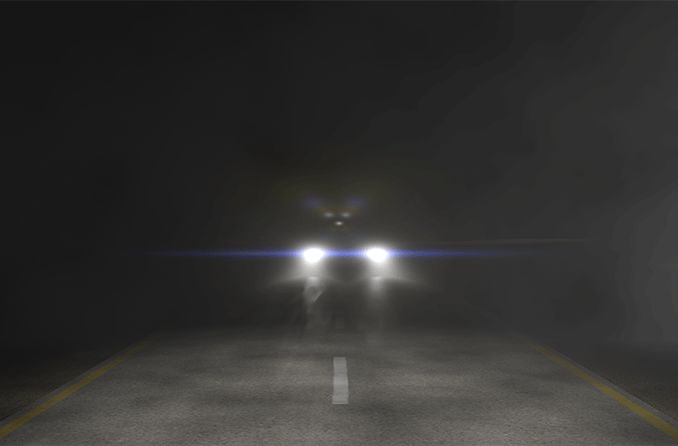What is night blindness?

Night blindness (nyctalopia) occurs when a person has significant difficulty seeing in poorly lit environments. While it is relatively normal to experience some blurriness and trouble seeing clearly at night (due to a visual acuity issue), night blindness may be a warning sign of a serious eye condition.
What is night blindness?
Night blindness is the struggle or inability to see at night time or in dimly lit environments such as a movie theater or restaurant. Those who have night blindness often experience a more difficult transition from bright to dark lighting than those who do not have this vision impairment.
While night blindness is considered a vision impairment, it is often a symptom of a bigger issue.
Signs of night blindness
Night blindness is frequently a symptom of a vision condition. Some common signs of night blindness include:
Severe blurry vision at night
Notable discomfort or trouble seeing in poorly lit environments
Significant difficulty seeing when you drive at night
Constant squinting to see better in dark environments
Seeing halos or glare around lights at night
SEE RELATED: Night Vision (Scotopic Vision)
What causes night blindness?
Night blindness is an impairment that is typically caused by an underlying vision condition. Some underlying conditions that may cause night blindness include:
Diabetes
Imbalances of glucose or vitamin A
Contact your doctor as soon as possible if you are being treated for any of the listed conditions and develop symptoms of night blindness (or if symptoms worsen).
How is night blindness diagnosed?
Night blindness is diagnosed through an evaluation of your medical history along with an eye exam. Additional blood testing may be done to make sure your levels of vitamin A and glucose are in balance, as imbalances of either (or both) can contribute to night blindness.
Once an eye doctor makes a diagnosis of night blindness, treatment can begin depending what might have caused it.
How is night blindness treated?
The treatment for night blindness depends on the underlying cause. Some cases can be treated with a new pair of glasses, while treatment may be limited for others.
Nearsightedness
Night blindness that is caused by nearsightedness (myopia) can be treated with an updated glasses prescription. Vision should be evaluated on a yearly basis to maintain the correct prescription for a refractive error and to detect any other vision problems.
Nutrient imbalances
People with diabetes or high glucose should monitor blood levels and treat them as advised by a doctor. Proper treatment can help improve or relieve night blindness completely.
If a vitamin A deficiency is to blame for night blindness, increasing your intake of the nutrient through diet or supplements may help improve your vision impairment. Vitamin A can be found in several foods including carrots, eggs, collard greens, sweet potatoes and more.
Cataracts, glaucoma and other eye conditions
Cataracts and glaucoma may be treated with medication or a surgical procedure, depending on the case. The proper treatment of these and other eye conditions can help relieve symptoms including night blindness.
Treatment may be limited if night blindness is the result of a genetic disorder such as retinitis pigmentosa.
Contact an eye doctor if you experience significant visual impairment in poorly lit environments or if you have difficulty seeing while you drive at night. The cause of night blindness, whether it is mild or severe, is best determined and treated by an eye doctor.
READ MORE ON NIGHT VISION:
Tips to improve your driving at night
Night driving glasses: Help or hoax?
Should you wear polarized glasses while you’re driving at night?
What is night myopia (nearsightedness)?
Night vision goggles and binoculars
Night vision (scotopic vision)
Page published on Monday, January 4, 2021






